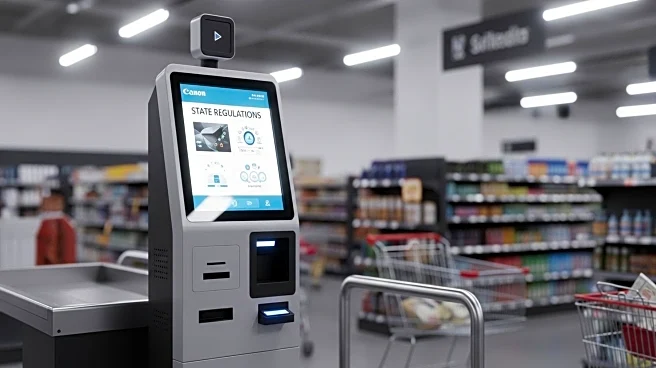What's Happening?
Several states, including California, Rhode Island, and Texas, are implementing new regulations on self-checkout kiosks in response to concerns over theft and customer service. In Long Beach, California, a new ordinance requires grocery stores and retailers to have at least one employee supervising every two self-checkout kiosks and limits the number of items to 15 per transaction. Rhode Island is considering a bill that would limit grocery stores to six self-checkout kiosks and require a staffed checkout lane for every two kiosks. Texas is increasing penalties for theft at self-checkout kiosks, with fines and potential jail time based on the value of stolen goods. These measures reflect ongoing debates about the role of self-checkout technology in retail.
Why It's Important?
The regulations highlight the tension between technological convenience and the need for human oversight in retail environments. Retailers like Walmart and Target have invested heavily in self-checkout technology to streamline operations and reduce labor costs. However, the rise in theft and customer dissatisfaction has prompted states to intervene, potentially increasing operational costs for businesses. These changes could lead to a reevaluation of the balance between automation and human employment in the retail sector, affecting both consumer experience and job availability.
What's Next?
As these regulations take effect, retailers may need to adjust their strategies, possibly increasing staffing levels or investing in new technologies to comply with state laws. The outcomes of these regulations could influence other states to adopt similar measures, potentially leading to a nationwide shift in how self-checkout systems are managed. Retailers will likely monitor the impact on theft rates and customer satisfaction to determine the effectiveness of these regulations.









